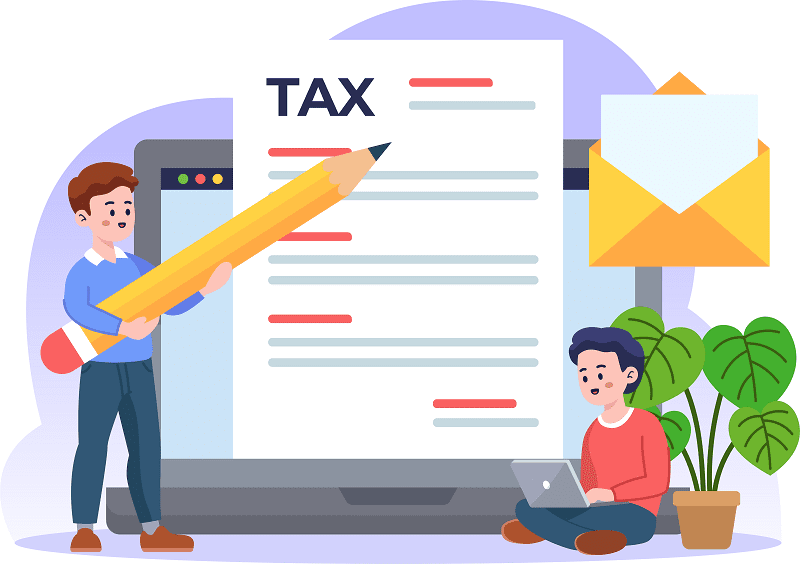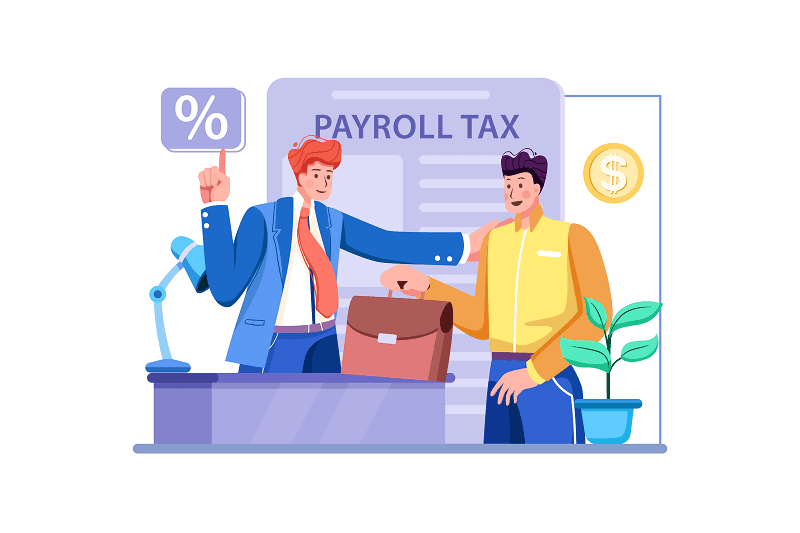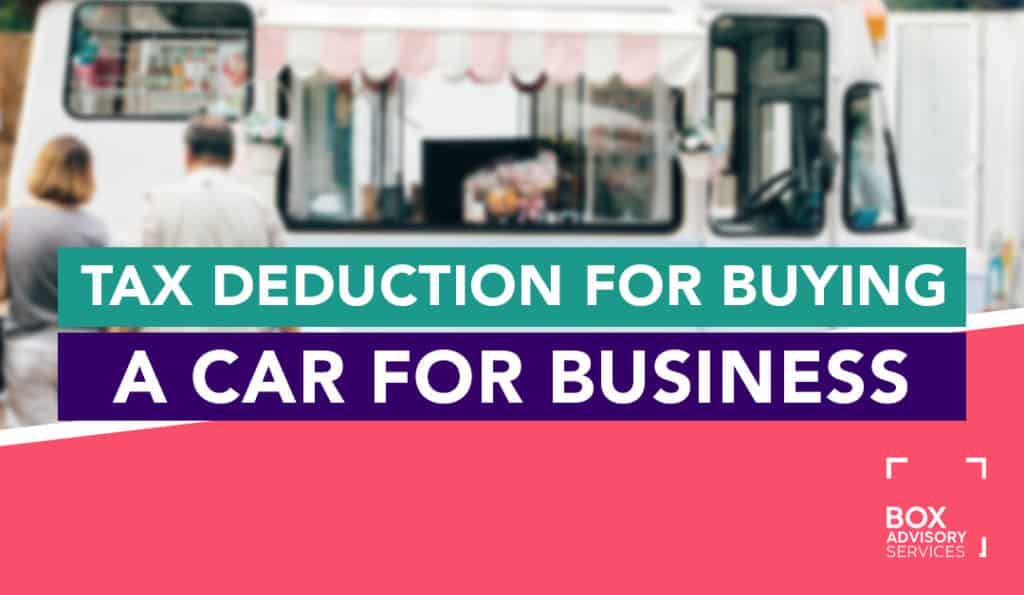
BY
|
What is Company Tax Compliance? The Essential Guide
Running a business is not always easy. One of the most important aspects for businesses, especially those who are just starting out, is to ensure they are compliant with company tax laws in the Australian tax system.
There’s no point in working hard to build your company if you’re going to get fined or penalised for not following company tax law.
So, to help you navigate your tax compliance obligations, this blog post aims to provide an overview of what is required when it comes to company tax compliance and tax legislation and how this can be achieved through simple tax planning steps.

Company tax compliance involves ensuring that your business meets its legal requirements regarding taxes and reporting.
A company is a separate legal entity for income tax purposes and is therefore required to lodge its own tax return with the Australian Taxation Office. Beyond having to lodge a company tax return, you need to be aware of PAYG withholding obligations, fringe benefits, tax liabilities as well as GST responsibilities. In addition, there are other relevant taxes, such as payroll tax which you need to consider.
While businesses usually employ the services of business tax accountants to help navigate the complex world of taxation, it’s nonetheless good to have a foundational understanding of what your tax obligations are.
Business Tax Registration
All businesses operating in Australia are required to be registered with the Australian Business Register (ABR). You will need an Australian Business Number (ABN), which is a unique number that helps the ATO identify your business.
In addition to your ABN, you will also need to register for a Tax File Number. Typically, business owners can apply for their TFN while registering their business with the ABR.
Tax Laws: What is Goods and Services Tax (GST)?
Goods and Services Tax or GST is a tax that applies to most goods and services sold in Australia. You’ll be required to register for GST and pay the flat rate of 10% on sales of goods and services and claim back the 10% GST component from expenses to and from the Australian Government in the following circumstances:
- when your business has an annual turnover of $75,000 or more;
- when your non-profit organisation turns over $150,000 or more per year;
- when your business offers a rideshare service such as Uber and taxi or limousine travel (regardless of whether or not annual turnover is more than $75,000); and
- when you want to claim fuel tax credits for your business.
So, if you fall into one of these categories, you’ll need to do the following:
- Register with for GST – you can register through registered tax professionals such as Box Advisory Services.
- Lodge a quarterly business activity statement – once you’ve registered for an Australian business number (ABN) and GST, the ATO requires you to lodge a BAS once a quarter rather than once a year.
There are some situations where you may want to voluntarily elect your business to register for GST. For example, if your business generates a large amount of GST-Free income and has significant expenses with GST, then it will be tax effective to register for GST voluntarily. Speak to tax professionals such as Box Advisory Services to determine this.
If you would like to know more about how GST is calculated, make sure to check out our Ultimate Guide on GST.
How Does PAYG Withholding Work?
PAYG withholding is a tax that employers collect from their employee’s wages and then pay to the ATO. So, if your business employs employees (or contractors), you must register for pay as you go (PAYG).
The percentage tax costs that you withhold from each employee’s wages are dependent on their personal tax information.
Similar to applying for your TFN, you can register for PAYG at the same time as registering your business. However, if you registered your business before employing staff, you can simply register for PAYG via the ATO’s business portal. Alternatively, your accountant can register on your behalf as part of their tax services.

Tax Planning: What About Payroll Tax?
Another tax your company is required to pay to ensure compliance is payroll tax. Payroll tax is the tax levied on the total amount of wages the business pays each month. However, unlike PAYG and GST, payroll tax is a state and territory levied tax. In other words, each state or territory’s requirements for payroll tax will differ.
Each state or territory generally has a threshold, and you will only be liable to pay payroll tax should you exceed that threshold. For example, in New South Wales (NSW), the current payroll tax threshold (2021 -22) is $1.2 million, and the tax rate is 4.5%. So, if you operate your business in NSW and your wages exceed the threshold amount, you’ll have to pay tax on the total amount after $1.2 million.
If your company conducts business in multiple states, you’ll need to ensure that you register for payroll tax in each state if your total wages exceed the relevant thresholds.
For information on payroll tax rates and thresholds in your state or territory, check out these essential things you need to know about payroll tax.
What Other Taxes Could Your Company Be Liable To Pay?
In addition to GST, Payroll tax and PAYG withholding, there are several other taxes you should be aware of, including:
- Fringe Benefits Tax (FBT): as a business owner, you could be liable for fringe benefits tax if you provide certain benefits to your employees or even to yourself.
- Fuel Tax Credits: the ATO allows you to claim fuel tax credits for the tax (excise or customs duty) levied on the fuel you use to carry out various business activities.
- Wine Equalisation Tax: according to the ATO, if you produce wine, import wine into Australia or sell wine wholesale, you’ll generally be liable to pay wine equalisation tax.
- Luxury Car Tax: luxury car tax is a tax levied on cars with a total value more than the threshold set by the ATO.
Staying Compliant: Tax Reporting and Record-Keeping
As part of remaining tax compliant, your company needs to meet certain reporting and record-keeping obligations.
You are required to keep records of all your business transactions for at least seven years, including:
- tax invoices,
- receipts for all sales and purchases,
- records of your salary and wage obligations, and
- any other transaction records.
In addition to maintaining your records, you’ll need to report your company’s income, expenses and tax obligations via a Business Activity Statement (BAS).

Key Takeaways
As you’ve seen in the post, Australian businesses have many different obligations to comply with when it comes to their tax.
If you need help understanding any of these requirements or want a second opinion on your existing tax compliance strategy, feel free to get in touch with the Box Advisory Team.
Box Advisory Services is a small business accounting firm in Australia. We provide tax, accounting and financial services for small and medium-sized businesses, as well as individuals. We offer tailored solutions for businesses of all sizes so that they can focus on what matters most – growing your business.
We provide services that range from tax return preparation to strategic planning, cash flow management and general advice about how you might be able to improve your financial situation. Our experienced team offers practical insights into every aspect of running a successful business which will help increase profitability while also reducing risks.
Simply book a FREE consultation with us or give us a call to discuss how you ensure your company tax compliance.
Disclaimer:
Please note that every effort has been made to ensure that the information provided in this guide is accurate. You should note, however, that the information is intended as a guide only, providing an overview of general information available to property buyers and investors. This guide is not intended to be an exhaustive source of information and should not be seen to constitute legal, tax or investment advice. You should, where necessary, seek your own advice for any legal, tax or investment issues raised in your affairs.



